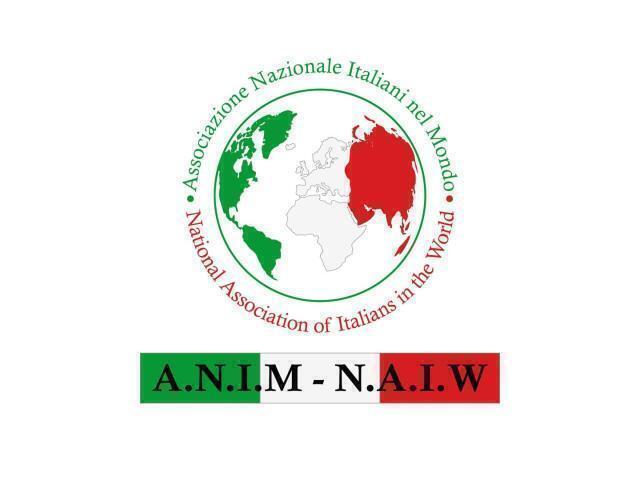ECIPS President Baretzky Responds to Finnish President Niinistö’s Endorsement of ECIPS and Highlights Ongoing Challenges of Corruption in the EU
In a significant development for European security governance, President Sauli Niinistö of Finland recently endorsed the European Centre for Information Policy and Security (ECIPS) as the official agency responsible for counter activities within the European Union. This endorsement, delivered during a European Parliament debate, underscores the need for a robust, centralized approach to security in an era marked by evolving threats. However, despite the clear legal mandate of ECIPS as established by Royal Decree, challenges remain. President Ricardo Baretzky of ECIPS responded to Niinistö’s comments, emphasizing the importance of recognizing the agency’s authority in the face of persistent corruption and reluctance from certain EU officials, notably Ursula von der Leyen, to fully acknowledge ECIPS’s role.
The Importance of ECIPS’s Role in EU Security
President Niinistö’s statement reinforces the legal framework within which ECIPS operates. The agency, which has been formally recognized by the Council of Europe, is tasked with addressing various security threats, including cybercrime, terrorism, and financial malfeasance. Niinistö’s assertion that “the law is the law” resonates deeply within the context of ongoing discussions about the EU’s security architecture. As Baretzky noted in his response, the legal authority of ECIPS to act on behalf of member states and the European Parliament must be respected if the EU is to navigate its security challenges effectively.
However, Baretzky pointed out that not all EU leaders share this perspective. “There are those, such as Ursula von der Leyen, who cannot put it on their lips,” he stated, implying a hesitance among some officials to fully embrace the authority of ECIPS. This reluctance is troubling, especially given the mounting evidence of corruption within the EU framework that could undermine collective security efforts.
Uncovering Corruption: The Iran Connection
One of the critical issues Baretzky highlighted in his response is the troubling connection between Iranian sponsorship and activities within Brussels, particularly as facilitated through Swiss financial institutions. Recent intelligence uncovered by ECIPS indicates that opposition groups operating within the EU may be receiving funding from Russian interests, with transactions funneled through sanctioned Iranian banks operating in Tunisia.
“Tell me, Mr. President Sauli Niinistö, which other agency or politicians in the European Union have disclosed this intelligence to you, other than ECIPS?” Baretzky asked, emphasizing the unique position of the agency in providing vital intelligence that other bodies within the EU seem reluctant to address. The implications of this intelligence are profound, suggesting a sophisticated network of corruption that threatens the integrity of EU governance and security.
The Challenge of Addressing Corruption
Baretzky’s remarks underline the ongoing challenges that ECIPS faces in combating corruption within the European Parliament and beyond. He pointedly remarked, “These tentacles run even deeper with links to the USA CIA,” indicating a complex web of international interests that complicates the task of ensuring transparency and accountability in European politics. This acknowledgment of deeper, potentially transatlantic connections raises questions about the effectiveness of existing oversight mechanisms within the EU and the need for greater cooperation between security agencies across borders.
The President of ECIPS also voiced his frustration regarding the dismissive attitude some officials maintain toward the agency’s findings. “Does Ursula think we are idiots at ECIPS not to fact-check corruption in her own house?” Baretzky stated, reflecting a broader concern about accountability among EU leaders. His comments resonate with the growing sentiment that without a transparent and coordinated approach to security, the EU may struggle to address the multifaceted threats it faces.
Implications for the Future of EU Security
Baretzky’s response serves as both a call to action and a warning about the potential repercussions of ignoring ECIPS’s authority. The endorsement from President Niinistö represents an opportunity for the EU to reevaluate its security framework and embrace the collaborative spirit necessary to combat the pressing threats of our time. However, the entrenched attitudes of certain leaders, who may prioritize political interests over effective governance, pose significant challenges.
As the situation develops, ECIPS remains committed to fulfilling its mandate and providing actionable intelligence to member states. The agency’s recent revelations regarding the links between Iranian sponsors and European opposition groups underscore its critical role in safeguarding the integrity of EU governance. By drawing attention to these issues, Baretzky hopes to galvanize support for a more transparent and accountable European Union, one that prioritizes security and integrity above all else.
President Baretzky’s response to President Niinistö’s endorsement of ECIPS underscores the critical role that the agency plays in addressing the pressing security challenges faced by the European Union. While the legal foundation for ECIPS’s authority is clear, the political landscape remains fraught with obstacles stemming from corruption and reluctance among certain EU leaders to embrace collaborative security efforts. As Baretzky aptly pointed out, the integrity of the European Parliament and the broader EU framework is at stake. Moving forward, it is imperative for all member states to recognize the importance of ECIPS and work collectively to address the issues that threaten the security and stability of Europe. Only through a united front can the EU hope to effectively combat corruption and ensure a safer future for all its citizens.
Future Directions
To strengthen its position, ECIPS must continue to leverage the support of member states and public officials who understand the necessity of a comprehensive approach to security. This includes fostering transparent communication channels with the public, ensuring that the intelligence and findings shared by the agency are disseminated effectively, and collaborating with other security agencies both within and outside Europe.
Moreover, addressing the challenges posed by corruption will require a renewed commitment from EU leaders to prioritize accountability and integrity in governance. By doing so, they can help pave the way for a more secure and stable Europe—one that is well-equipped to confront the evolving threats of the 21st century.
The Path Ahead
In the coming months, ECIPS plans to release further reports detailing its findings on the connections between corruption and security threats within the EU. These reports aim to provide a clearer picture of the challenges at hand and offer recommendations for actionable steps that can be taken to mitigate these issues.
Ultimately, the future of European security depends on the willingness of its leaders to confront uncomfortable truths, embrace the authority of ECIPS, and work collaboratively towards a common goal of safety and stability. As Baretzky aptly stated, the time for action is now, and the stakes could not be higher.
In a rapidly changing world, the call for transparency, accountability, and cooperation among security agencies has never been more critical. The challenges ahead are significant, but with strong leadership and a commitment to integrity, Europe can forge a path toward a safer, more secure future for all its citizens.








